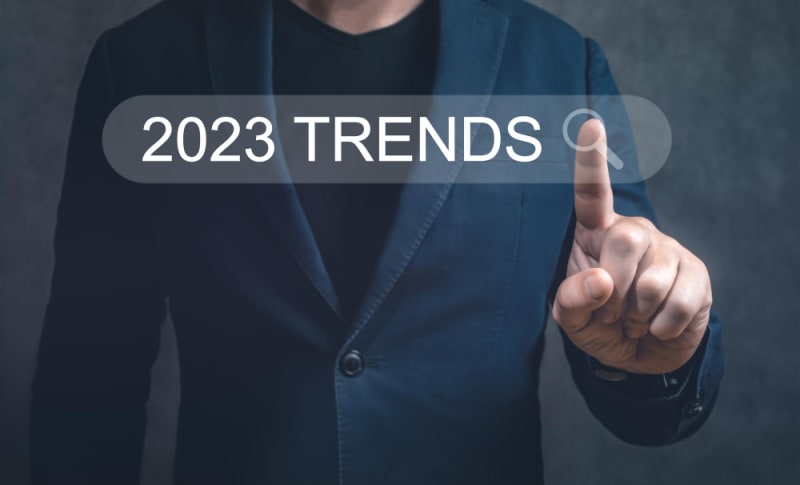Introduction
Enterprise Resource Planning (ERP) systems have played a pivotal role in transforming businesses by streamlining processes, enhancing productivity, and providing valuable insights for decision-makers. As we step into 2023, ERP solutions continue to evolve, adapting to the ever-changing business landscape. In this article, we will explore seven ERP trends that are expected to shape the business world in 2023.
Cloud-based ERP Solutions
The migration to cloud-based ERP systems has been gaining momentum over the past few years, and 2023 is no exception. Cloud-based ERP offers significant advantages, such as reduced infrastructure costs, enhanced accessibility, and improved scalability. Organizations are increasingly adopting cloud ERP solutions to streamline their operations, facilitate remote work, and access real-time data from anywhere, anytime. Additionally, the cloud enables easier integration with other software applications, fostering a more cohesive and connected technology ecosystem.
Artificial Intelligence (AI) and Machine Learning (ML) Integration
The integration of AI and ML into ERP systems is set to become a major trend in 2023. AI-driven ERP can optimize processes, automate repetitive tasks, and deliver valuable predictive insights to businesses. Machine learning algorithms can analyze vast amounts of data to identify patterns, make informed recommendations, and assist in decision-making. From demand forecasting to supply chain management and customer support, AI-powered ERP solutions promise to revolutionize the way businesses operate.
Internet of Things (IoT) Integration
As the Internet of Things (IoT) continues to expand its presence across industries, ERP systems are incorporating IoT integration to capture and process data from various interconnected devices. This integration enhances visibility, enabling businesses to monitor their assets, equipment, and products in real-time. IoT-enabled ERP can optimize inventory management, improve predictive maintenance, and offer data-driven insights to improve overall efficiency and reduce operational costs.
Enhanced Data Security and Privacy Measures
With the increasing dependence on cloud-based solutions and the rise in cyber threats, data security and privacy have become paramount concerns for businesses. In 2023, ERP vendors will place greater emphasis on implementing robust security measures, including advanced encryption, multi-factor authentication, and proactive threat detection. Compliance with data protection regulations, such as GDPR and CCPA, will be a top priority for ERP providers, ensuring that customer data is handled with utmost care and confidentiality.
Mobile ERP Capabilities
Mobile ERP capabilities are becoming indispensable for businesses that value agility and adaptability. In 2023, ERP vendors will focus on delivering user-friendly and feature-rich mobile applications, allowing employees to access critical business data and perform tasks on the go. Whether it's approving purchase orders, checking inventory levels, or reviewing financial reports, mobile ERP empowers decision-makers to stay informed and responsive regardless of their physical location.
Industry-Specific ERP Solutions
While ERP solutions have traditionally been designed for generic business needs, 2023 will witness a surge in industry-specific ERP solutions tailored to meet the unique requirements of various sectors. Whether it's healthcare, manufacturing, retail, or finance, industry-focused ERP systems will offer specialized modules and functionalities to streamline processes, comply with industry regulations, and boost overall efficiency.
Enhanced User Experience and Interface Design
User experience (UX) will take center stage in ERP design in 2023. ERP vendors will invest in creating intuitive and visually appealing interfaces, making it easier for users to navigate complex ERP systems. Improved UX will contribute to higher user adoption rates and better productivity across organizations. Furthermore, the incorporation of chatbots and voice-based assistants within ERP interfaces will simplify interactions and make ERP systems more accessible to users at all levels of technical expertise.
Conclusion
The year 2023 promises exciting advancements in ERP technology, as businesses continue to seek solutions that enhance their operational efficiency and decision-making capabilities. Cloud-based ERP systems, AI and ML integration, IoT connectivity, enhanced data security, mobile ERP capabilities, industry-specific solutions, and improved user experience will undoubtedly shape the ERP landscape in the coming year. Embracing these trends will empower organizations to stay competitive, agile, and resilient in an increasingly digital and interconnected business world.





Top comments (0)